Anyone creative knows that stress can bring your creativity grinding to a halt. My January was an avalanche of physical and emotional stress: family illnesses pretty much every week, an arm injury that is not healing, Donald Trump’s inauguration and the chaos that followed, and the anniversary of my best friend’s death, which always knocks me sideways. My creativity bombed big time. I needed a safe place to recharge.
My tailspin seemed unshakeable. I could still churn out the non-fiction blog posts and query letters, but my fiction vanished. Something outside myself had to bring my focus back. I found that something at Kathryn Craft’s Craftwriting sessions.
My anxiety disorder niggles at me in the best of times, and this January exacerbated it to the limit. I cannot write in that frame of mind, and it is exceedingly hard to “snap out of it” when you are in the depths of the spiral. When I told Kathryn how my anxiety was acting up, she said, “You know you have a safe place here.”
Yes, the term “safe place” has been politicized of late (what hasn’t been?), but we all need some places in life where we feel physically and emotionally safe. Ideally, home is one of those places. If we are lucky, we find other places outside the home where we feel safe. Without that safety net, being creative can be too frightening.
This is especially true at Craftwriting, where we end each session practicing a craft element by writing a scene, and then share it with the group. It can be terrifying to share your first-draft word vomit with a group of people, some of whom you may never have met before that day. Yet we do it, because Kathryn has created a safe place for us to share even the rockiest of writing.
Don’t get me wrong, we do not indulge in the pats-on-the-back, participation trophy type of false praise. We are professional writers, we are there to learn, and we cannot learn without honest feedback. However, we don’t couch the feedback negatively. We talk about what is good about the writing. We offer suggestions of what might be done in future revisions to improve the technique we were studying. But because we are all equally vulnerable (we all had the same 25 minutes to write something—anything—after all), we choose to uplift rather than tear down. I have been taking Kathryn’s Craftwriting workshops for years, and I have never had a negative experience. This is a testament to the atmosphere and expectations Kathryn sets, and the character of the people who come to the workshops.
This round of Craftwriting has done more than (hopefully) improve my craft. It has shaken me out of my daze, and forced the creative flow back to the surface. I’m writing again, and the writing itself is helping me find the stability I had lost in my tumultuous January. I feel more like me again.
And it’s all because I had a safe place to recharge my battery and refocus my mind. Many thanks to Kathryn and the wonderful participants of the workshops for providing me with exactly what I needed reconnect to my writing.
Do you have a special place to recharge or to reground yourself when you lose your writing mojo?

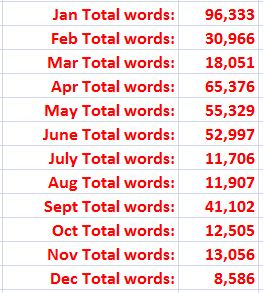
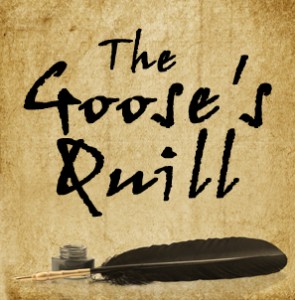
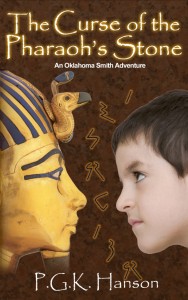
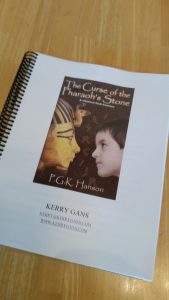
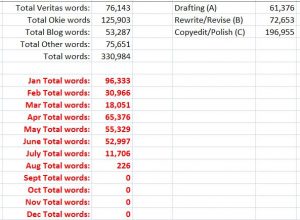
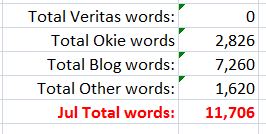
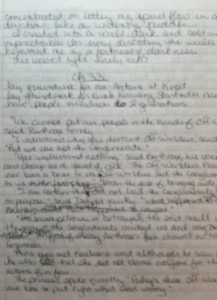
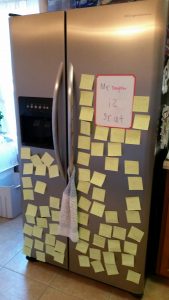
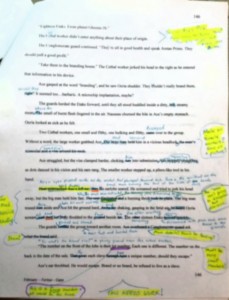
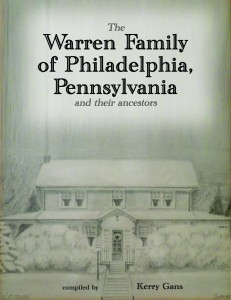

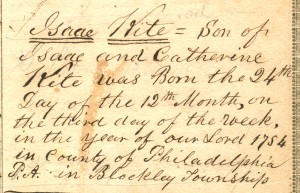
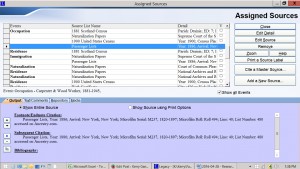
A Change of Place: Creativity and Location
So many things can impact our creativity—how we feel, what we eat, time of day, how much we’ve slept, outside worries. But one major component of creativity is place. Where we write. How does where we write influence what we write?
I’ve often read advice that we should have a specific place where we write. Perhaps an office, a local coffee shop, the library, or even a spot in our home. I’ve even heard that if you write on your sofa (as I do) you should write at one end and watch TV, etc., from the other. The idea behind all this advice is that having a dedicated writing space triggers your creativity because it trains your brain to write when you are in that spot.
This week I had a much larger change of place than the opposite end of my sofa. I spent some of the week in North Carolina, in a small rural town in the Blue Ridge Mountains. Over the years, I have noticed that this change of place triggers a change in mindset for me almost every time. For some reason, genealogy obsesses me when in North Carolina.
Now, it doesn’t take much to get me chasing down rabbit holes for genealogy. But for some reason, the past feels much closer to me while I am there. Perhaps it is because the town often feels like it is from a bygone era, and the surrounding mountains have a timeless quality. The many farms could be from a hundred years ago, and the pace of life is slower. Not everyone knows everyone, but the community is close knit. In the way of rural communities, many earlier generations had more than the 2.5 kids families have now, so kin networks sprawl across the land. The past is still very present here.
Maybe part of the mindset shift is because we come here specifically to visit family, so family is very much top-of-mind. Whatever the reason, it ramps up my genealogy obsession and I want to chase ghosts for hours.
This got me wondering what kind of stories I would write if I lived there. Would I still write fantasy and science fiction? Or would I be drawn to family dramas and small-town conflicts? What stories I would write if I lived on Chincoteague Island, as I did for 8 months one year? Would I be writing stories of wind and sea and sky?
Your location undoubtedly influences your writing, from topics to characters to theme. While a temporary relocation may not fundamentally alter what or how you write, a change of place can shake up your creativity and dig you out of a funk, break a writer’s block, or give you a new perspective on some element of your story.
Do you have a specific place you write? Have you found your creativity influenced when you have a change of place?
by William T. Gans, Sr.
Save
Save
Save
Save
Save